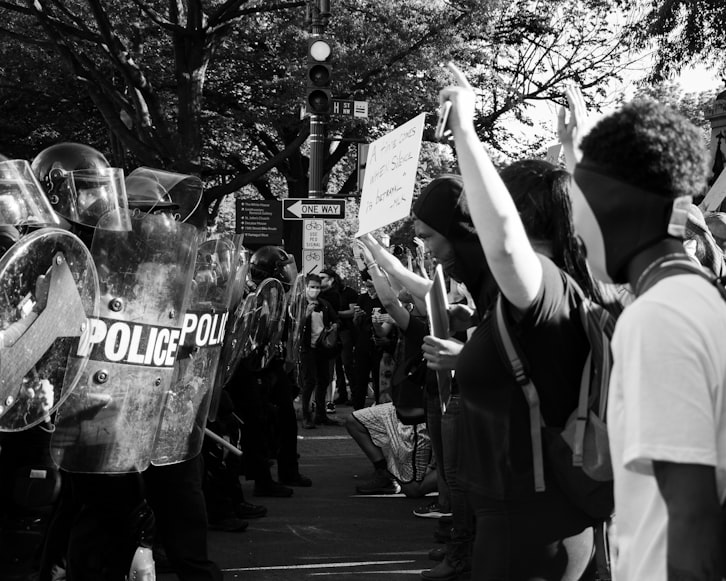Lebanese students are choosing secularism

DI GIANMARCO VILLANI
27/01/2023
The future ruling class of Lebanon seem to be losing interest in the religious cleavages that have defined its society for generations. The results of student elections show a rise of support for secular associations over the traditional confessional movements. Could this be the beginning of a radical social process that will change the picture of the Lebanese future?
The Lebanese political system is organized around the “National pact”, an agreement signed by the leaders of the three main religious communities among the 18 recognized denominations: the Maronite Christians, the Shia, and the Sunni communities. This communitarian division is all-encompassing, present in every aspect of day-to-day life: each confession has its own Civil Law regime, a specific institutional role recognized by the Constitution, a quota system for elections and dedicated state office roles. The impact of communitarianism in the Lebanese society permeates democratic dynamics, creating a system that is fundamentally defined by communities. Each political party’s identity is partly defined by its religious orientation, an aspect which has equally permeated the politics of the academic world, with most student associations affiliating to a political party and inheriting its political and confessional identity.
On October 17th, 2019, in Beirut, one huge protest started a movement that continued despite the pandemic and the explosion of the Port of Beirut, rippling into many other cities of the country. The demonstrators were initially protesting the raise of the VAT, but then their demands evolved into a condemnation of the corruption of the Government and the communitarian system as a whole. In this context, the Lebanese university elections of 2020 recorded an unprecedented result: the secular student associations won in most of the faculties. This result provoked a reaction of surprise and dismissal from the traditional political parties of the Lebanese Parliament. Universities have been the stage of several rallies, marches, and protests during the Syrian occupation, after which the Christian political associations and movements became extremely popular. As is the case with many political events in Lebanon, university elections are very polarizing and often cause clashes among students.
Some of the activists of the Secular Club of the University of Saint Joseph of Beirut took part in the political discourse sparked by the movements, supporting the secularization of the Lebanese regime and the end of confessional cleavages. In the elections of 2022, the USJ Secular Club won in seven of the ten faculties in which it submitted a list of candidates, gaining the presidency of the Political Science and Law departments, both situated in the campus on Huvelin Street. The Huvelin Campus is largely considered as the epicenter of student political activism, both at Saint Joseph and in the country: it is often where the minds of future Lebanese leaders are formed. Faculty elections carry with them a “heavy air” that pollutes the interactions among students, particularly those between the Christian and Muslim communities and their respective student associations. Independent clubs like Talib (طالب) and non-denominational associations such as the Secular Club (النادي العلماني) work as a catch-all party, appealing to students of all confessions and calling for a more horizontal approach to university politics. These movements work hard to engage with the electorate, both on social medias, where they have a strong presence and committed posting schedule, and in person, reaching out to students to mobilize them to vote and campaign. Unsurprisingly, the turnout in these “politicized” faculties is very high: 75.01% of the students at the University of Saint Joseph participated in the elections, and in the Huvelin campus the turnout amounted to 84%.
The rise of non-confessional associations on the political scene of USJ sparked controversy and mistrust from other movements, especially from those associated with the two main right-wing, conservative Christian parties: the Lebanese Forces and the Lebanese Phalanges. The secular clubs are described as leftist because of their pluralist views, and often accused of conspiring with the Hezbollah party, which is leftist and predominantly Shia Muslim. Nevertheless, voters seem to reward these associations and their focus on the problems of their departments rather than confessionalism. Since 2020, the university has moved the voting procedures to an online platform, which led to a decrease in the number of violent episodes on Election Day and mitigated some tension around these events. But during the electoral campaigns, clashes remain a problem and the Beirut police has been called on multiple occasions to de-escalate violent conflicts on campus.
Despite the hardships that these student political associations have had to deal with, it is undeniable that the next generation of Lebanese students is starting to challenge the idea of communitarianism. By starting to breach the wall that separates religious confessions in the context of university politics, the Lebanese youth might continue to create a more inclusive society. According to the protestors who occupied the streets of the main Lebanese cities, the separation among confessions hasn’t worked for years now. It was created to give every community a different role so that they could occupy the Lebanese social space, remaining within the frontiers drawn by the National Pact, but now the youth seem to have moved past the need for these borders and are slowly erasing them.
Thanks to Maxime Charcosset from Ecole Normale Superieure of Lyon and to Nour Daccache, president of the Faculty of Political Science of the University of Saint Joseph for their contribution.


